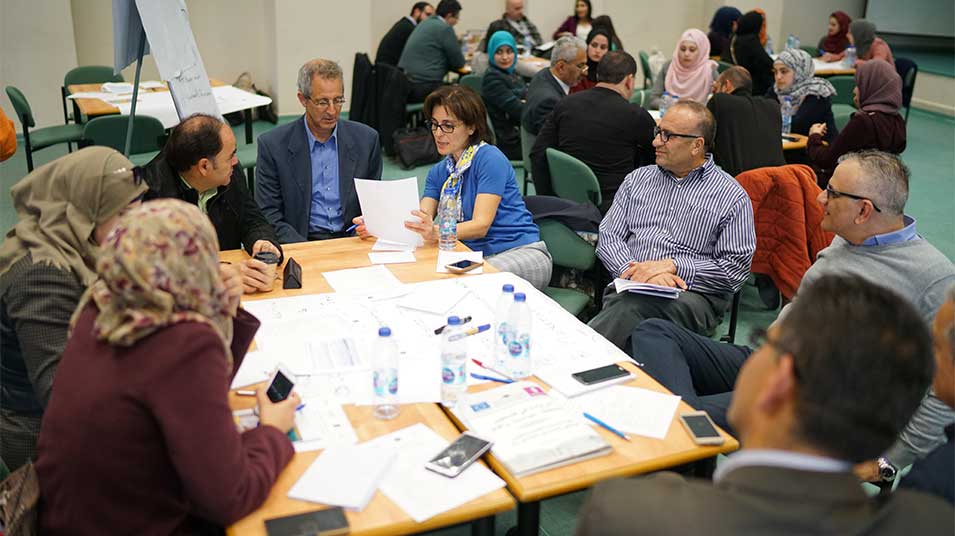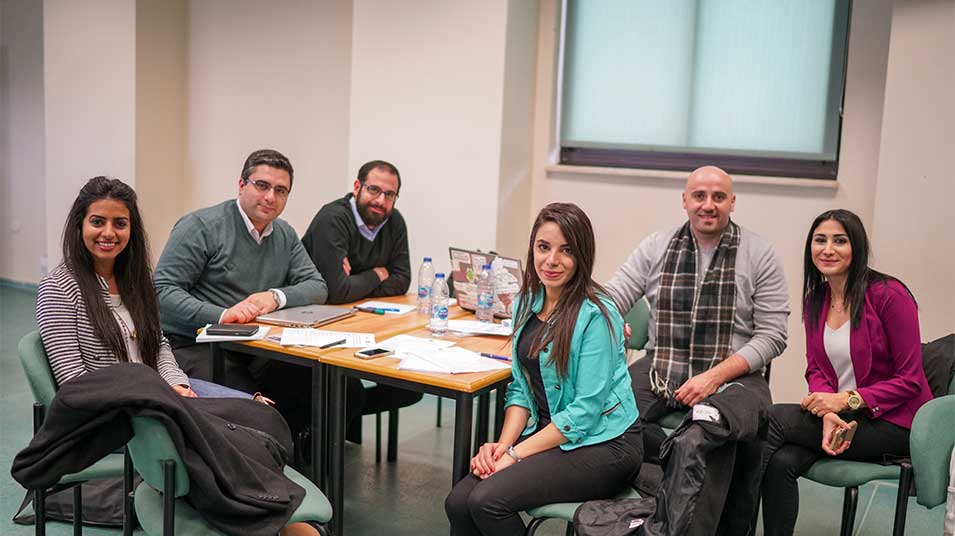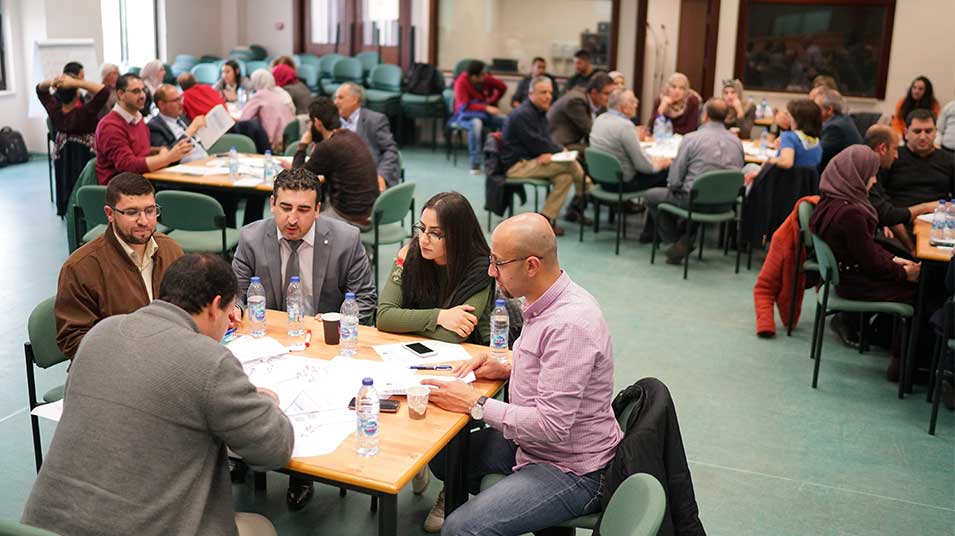Education specialists, academics, students explore tangible avenues for future development of higher education in Palestine
The British Council concluded its international symposium on “Palestinian Higher Education and Sustainable Youth Enterprise: Placing Students at the Heart of the System to Develop 21st Century Graduates” which was held on April 10-11, 2018 on campus at Birzeit University.
The two-day symposium brought together academics and students from Palestinian universities and UK experts from the University of Salford, the University of South Wales and Coventry University. The UK facilitation team was joined by Prof. Helen Marshall, the Vice-Chancellor of the University of Salford, who shared her vision on the current changes in higher education and the growing demand to equip students with the skill sets needed to foster innovation and sustainable idea generation.
Dr. Bulbul, Vice President of Planning and Development opened the conference with a welcoming statement and commended the efforts of the British Council through its various programs in support of higher education in Palestine. “The symposium comes as a culmination of over two years of collaboration and exchange among many of the participating Palestinian institutions and the UK team on developing students’ intrapreneurial and entrepreneurial competencies of the 21stcentury within the Palestinian context,” she added.
On her part, Caroline Khalaf, deputy director of the British Council, emphasized the council’s commitment to support higher education in Palestine, calling the symposium a “distinctive project” with its focus on students and graduates and their readiness for the 21stcentury and expressed her enthusiasm at seeing the results of “two years of relentless efforts.”
Dr. Basri Saleh, deputy minister of education and higher education, reviewed the current challenges facing Palestinian higher education and stressed the importance of stronger linkages and collaboration with the private sector.
Dr. Grogan, the pro vice-chancellor for student experience at University of Salford, stressed the importance of the symposium and the project in focusing attention on the students’ voice and their views and experiences on embedding entrepreneurial skill sets in their university education.
The first day of the symposium focused on current trends and practices in Palestinian universities in integrating entrepreneurial education into academic provisions, whether at an institutional level or through distinct programs and activities, to expand students’ exposure and competencies in areas related to real-life problems and community engagement.
Building on the discussions and presentations of the first day, the second day engaged the delegates in an interactive and collaborative workshop focused on developing curriculum models designed to develop sustainable graduate enterprise and entrepreneurialism. The symposium drew notable student participation, with several student presentations, as well as important contributions to discussions.
The symposium presented an opportunity to examine the challenges and opportunities that lie ahead for higher education in Palestine, in addition to highlighting the differing perspectives and lessons learned from the current development operations for pedagogical practices in the Palestinian higher education sector.














